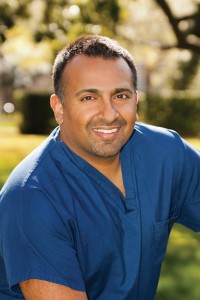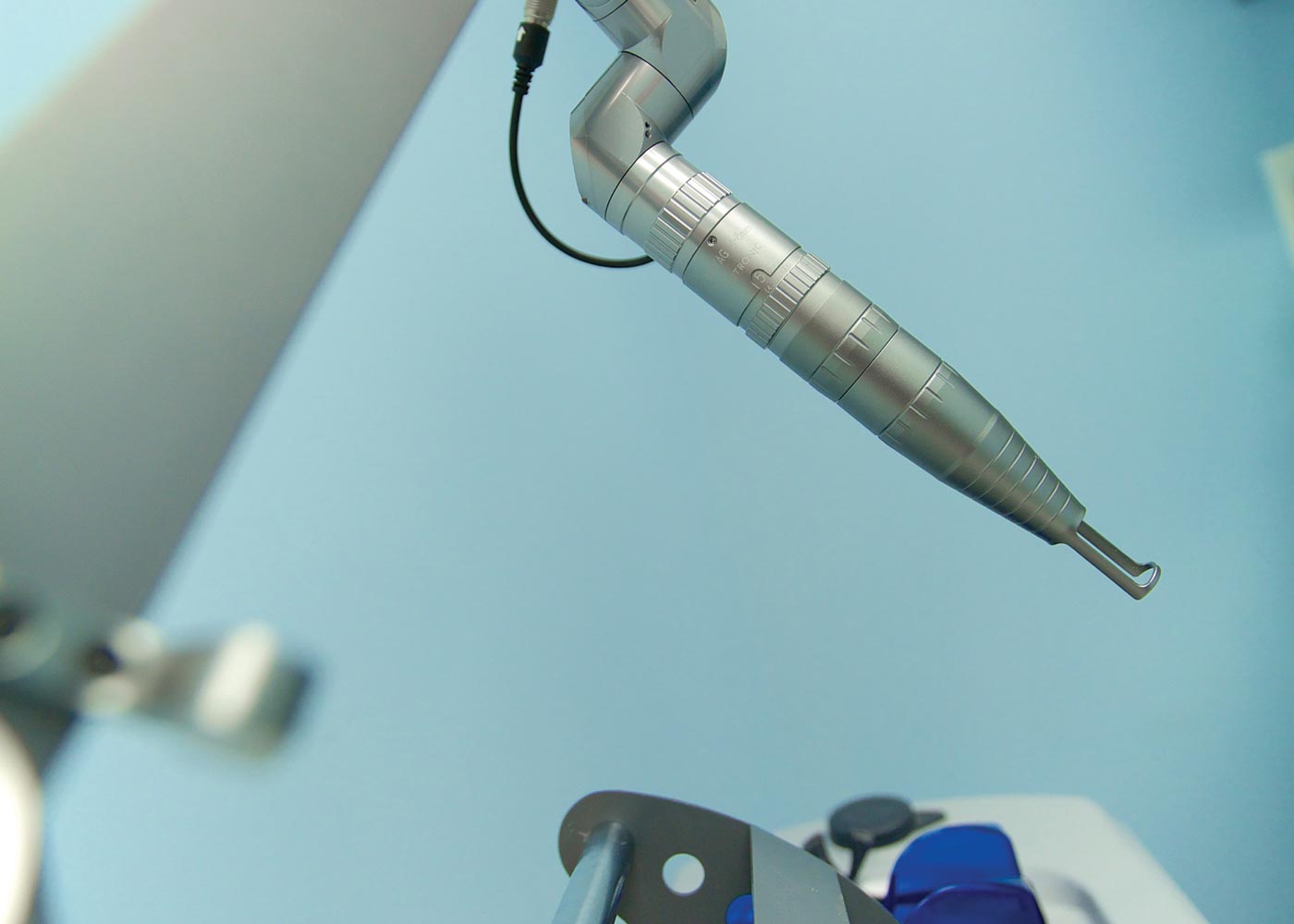Ever since he was a child, Dr. Ibrahimi was fascinated with taking things apart and putting them back together. How things work — and how to make them better — have been the building blocks of his career. After graduating magna cum laude from NYU undergrad in 1999, he enrolled that same year in the NYU School of Medicine MD-PhD program. After completing his residency at Harvard Medical School and a fellowship in Mohs and reconstructive surgery, laser and cosmetic surgery, he joined Massachusetts General Hospital in Boston, MA, and University of Connecticut Health Center in Farmington, CT, as an assistant professor. Today, he’s the medical director of the Connecticut Skin Institute in Stamford, CT.
What attracted you to the world of cosmetic enhancements?
In school, I was drawn to physics and chemistry. I always found light and its electromagnetic properties to be fascinating. That reflects my professional interests today as a subspecialist who focuses on the surgical removal and reconstruction of skin cancers on the face, and laser/cosmetic procedures. I always feel happy when I can help a patient feel better about themselves by improving a cosmetic issue.

What are some of the most popular treatments you perform on women in our area?
Our office is one of the few facilities nationwide that offers the full spectrum of non-invasive laser/cosmetic technology, combined with nationally recognized expertise in these procedures, meaning that we conduct clinical research trials, publish papers and book chapters, and teach other physicians. We can do everything from laser hair removal to the most advanced laser resurfacing procedures, as well as Botox and filler injections, and body contouring. One of the most popular treatments in our office is our Fraxel laser for skin rejuvenation. Another is Coolsculpting to treat fat non-invasively. We also get many requests for laser tattoo removal, as many young adults realize that tattoo they got in college no longer works in their professional or personal lives.
How do lasers work, and what makes one better suited to treating wrinkles or scarring, or erasing discoloration?
For a laser to work, it has to target a particular structure in the skin and heat it up without harming the surrounding tissue. For example, imagine there was a white car and a black car out in your driveway on a hot summer day. Which car would you find to be hotter if you took a thermometer and went inside? The black car, because it absorbs more sunlight than the white car does. In much the same way, if you can take a laser wavelength that is absorbed by a particular target, such as a hair follicle, and not by the surrounding tissue, you can heat up that target and destroy it without harming any of the other important structures in the skin.
Where do you think the science will be five to 10 years from now?
Acne is the number one disease we treat in teenagers, and it can also plague adults. We can treat acne, but we have been unable to cure it. In the next few years, we may have a laser that can selectively destroy the sebaceous gland, which is the root cause of acne lesions. That means we may actually be able to cure acne. As a physician, what would be amazing is if we found a way to put this laser into a fiber that can be sent through the blood vessels to the heart, and then zap away atherosclerotic plaques. It may one day make cardiac stents and cardiac bypass surgery relics of the past. The possibilities are endless.
Are there any laser applications the average person might not know about?
Most patients I hear from had no idea it was possible to remove fat non-invasively. People act very surprised when I tell them that with a simple cooling procedure, with no downtime, they can get appreciable and significant reduction in a treated area. It sounds too good to be true, but there is very sound scientific research documenting this phenomenon.
Is it ever too early or too late to start anti-aging treatments?
The best way to age gracefully is to start early, and this does not need to be an expensive proposition. It is always easier for me to age someone gracefully than to turn the clock backwards. I love when someone in their mid-20s or early 30s comes in, because it provides me with a wonderful opportunity to set a patient on a path that will reap dividends for years. Simple, cost-effective measures such as avoiding the sun will not only age skin more gracefully, but will also lower one’s risk for developing skin cancer.
Other non-invasive treatments like Botox/Dysport can prevent wrinkles on the forehead and around the eyes. I have many patients in their late 20s who get regular Botox injections from me because it prevents repeated motions that etch deep wrinkles into the skin over time. Early interventions with lasers also help keep the skin texture nice and smooth and free of blemishes. It’s never too late to start anti-aging treatments — in fact, if people start with small, non-invasive procedures early enough, they can significantly defy the aging process. As the saying goes, an ounce of prevention is worth a pound of cure. When one starts with smaller and less expensive procedures early enough, they may be able to avoid the more expensive and riskier surgical procedures down the line.
What should people keep in mind when booking a cosmetic treatment at a spa or salon instead of a doctor’s office?
Before you get that brown or red spot zapped, you should always make sure it’s looked at by a dermatologist to make sure that you are not treating a skin cancer such as a melanoma inappropriately. It’s for this reason that I passionately make the case for a patient to see a board-certified dermatologist for their laser and non-invasive cosmetic procedures.
What do you think is the most effective laser treatment for a person with average skin who wants to look younger?
The best laser for someone looking to refresh or rejuvenate their skin is a series of non-ablative laser treatments, which could be either the Fraxel laser or a pulsed dye laser, depending on what amount of downtime a patient can tolerate. A series of treatments can remove red or brown spots, smooth texture, shrink pores and smooth out fine lines and wrinkles.
What products do you recommend to your patients?
The best products one can use are a good moisturizer and sunscreen. These will significantly reduce the risk of skin cancer and slow the aging process. Many offices sell overpriced sunscreens, but I honestly think Neutrogena, CeraVe, Cetaphil and Aveeno make as good products for much less. I tell my patients to save their money and go to a local pharmacy.





